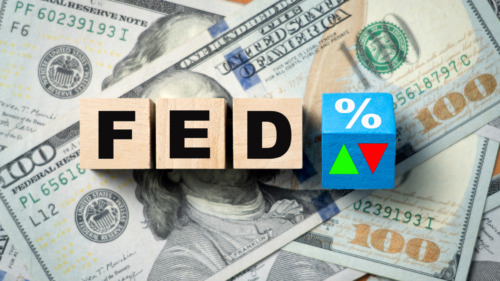Bitcoin or Gold? Bitwise CIO Unveils Whether Splitting Investments Really Delivers the Best of Both Worlds

- Matt Hougan, the Chief Investment Officer at asset management firm Bitwise, recently compared the effect of adding Bitcoin or gold to a traditional portfolio, finding Bitcoin increases returns while gold reduces risk.
- Hougan’s results showed that adding just 5% Bitcoin to a portfolio back in 2014 would’ve more than doubled its returns.
- Based on the impact Bitcoin has on a portfolio’s Sharpe ratio, a measure of its returns versus its risk, Hougan claims Bitcoin is clearly a better option than gold.
It’s a common question posed by crypto-curious investors — “Am I better off adding Bitcoin or gold to my traditional portfolio?” Well, Matt Hougan, Chief Investment Officer (CIO) for the crypto focussed asset management firm Bitwise sought to answer that very question in a recent blog post.
Hougan proposes one — perhaps predictable — answer to the question: it depends on what you’re looking to achieve. His analysis revealed that:
- If you want to increase your potential returns and have a higher risk tolerance, then Bitcoin is the better option.
- If you’re looking to reduce risk and maintain your returns, gold is best.
From his own personal perspective though, Hougan gave a more definitive answer, saying the choice is clear — Bitcoin is the better option.
Related: Advisors Increasingly Allocate to Crypto, Clients Will Follow Says Bitwise CIO
Historical Data Shows a Little Bitcoin Massively Boosts Returns
To answer the question of whether gold or Bitcoin is the better option, Hougan looked at historical performance data for both assets dating back to 2014. Using Bitwise’s Portfolio Simulator, Hougan modelled the impact of adding small allocations of gold or Bitcoin to a traditional 60/40 stocks/bonds portfolio.
As the table below shows, adding just 1% Bitcoin to the portfolio back in 2014 would’ve boosted returns almost 30%, while only increasing the standard deviation (a measure of risk) slightly. Adding 5% Bitcoin at inception would have more than doubled the portfolio’s returns.
In contrast, adding gold didn’t have much impact on returns, even adding 5% gold only boosted the portfolio’s returns since inception by around 2%. Adding gold did reduce the standard deviation though, indicating that it reduces risk.
Why Not Buy Both?
So why not just buy both gold and Bitcoin and get the best of both worlds? Hougan argues that won’t really work as you’ll essentially just split the difference — generating about half the returns you’d get by going all in on Bitcoin and still increasing your risk profile.
That flies in the face of traditional advice around diversifying a portfolio to spread risk across different asset types that perform differently during market ups and downs.
Related: VanEck CEO Predicts BTC to Reach 50% of Gold Market Cap, Approx 5x From Now
Hougan points out that gold has barely any effect on the portfolio’s Sharpe ratio, while Bitcoin sends the Sharpe ratio soaring. A Sharpe ratio is a measure of a portfolio’s risk versus returns, a higher Sharpe ratio is better.
In closing, Hougan gave the usual spiel about which asset is best for you depending on your goals…yada, yada, yada. But he also says, for him the choice is clear, Bitcoin is the winner:
But there’s a different, far simpler answer I’d give if I were speaking for myself and looking at those Sharpe ratios: ‘Bitcoin.’
 Matt Hougan, Chief Investment Officer, Bitwise
Matt Hougan, Chief Investment Officer, Bitwise Like any measure, the Sharpe ratio has limitations and as Investopedia states “The ratio’s utility relies on the assumption that the historical record of relative risk-adjusted returns has at least some predictive value.”






